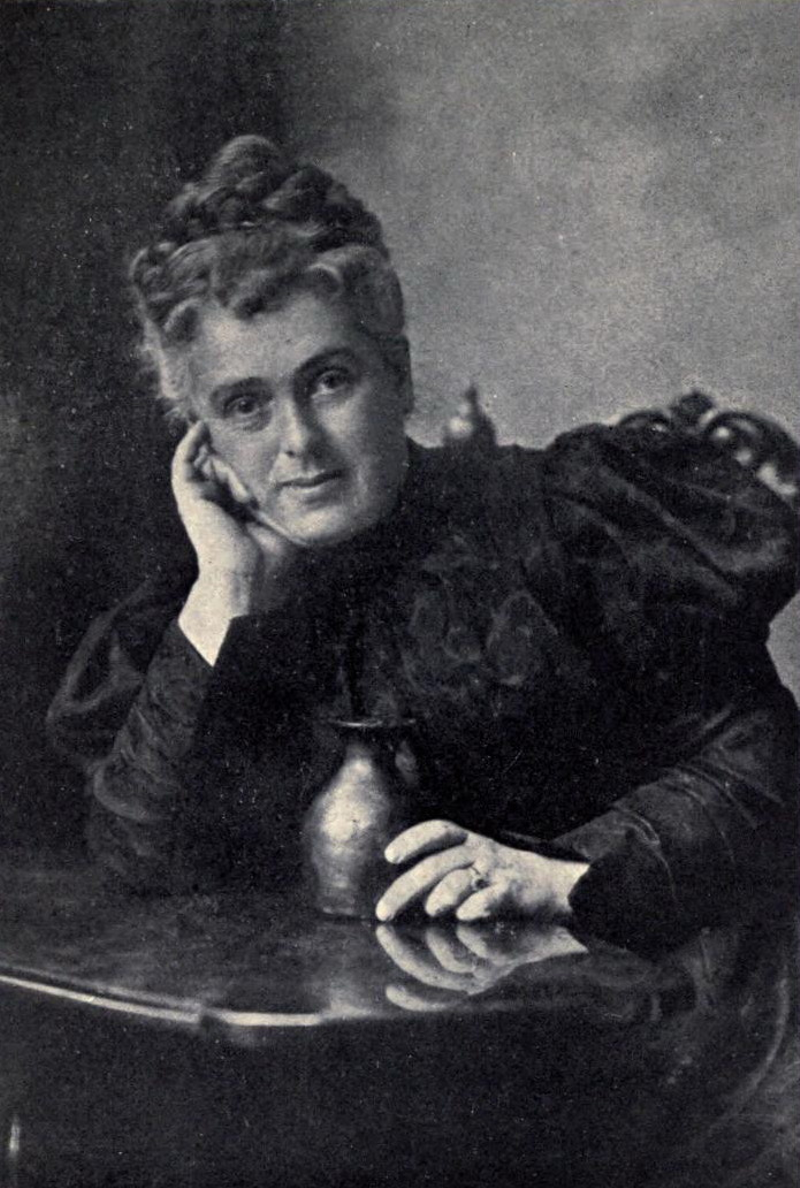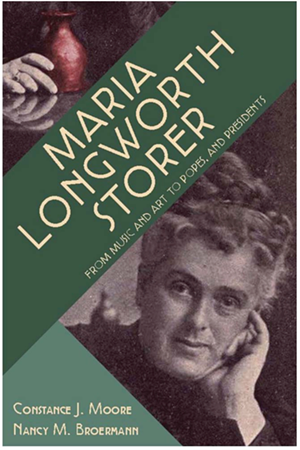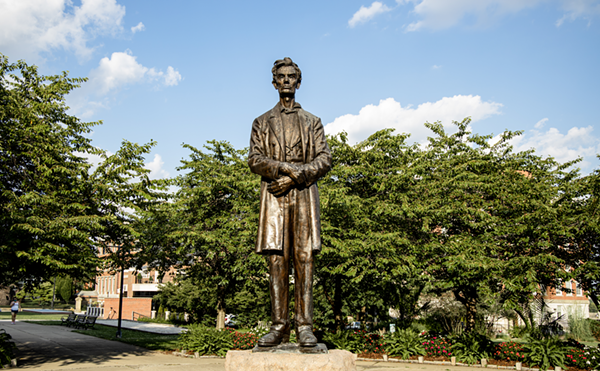On the 170th anniversary of her birth, Maria Longworth Storer, the founder of the famed Rookwood Pottery and a co-founder of Cincinnati’s long-running May Festival, is getting a comprehensive biography.
The beginnings of the book can be traced back to Constance J. Moore, a retired historian of the Army Nurse Corps Association. She also takes to researching former President Theodore Roosevelt. That detail is key, as it was an eight-page letter addressed “Dear Theodore” — rather than “Mr. President” — that led Moore to Longworth Storer. And, subsequently, to Cincinnati and Nancy M. Broermann, who works at the Ursulines of Cincinnati Archives at St. Ursula Academy. Together, they compiled nearly 1,800 letters in five languages from archives across the world, all of which were somehow related to Longworth Storer.
““No. 1 on my bucket list — something I’ve wanted to do since the time I got my first degree in history — is write a book,” Moore says via phone from her home in Texas. “When we were able to get the contract with University of Cincinnati Press, I was joyous.”
Titled Maria Longworth Storer: From Music and Art to Popes and Presidents, it marks Moore’s debut full-length novel. The pair will discuss their book at downtown’s Mercantile Library June 17.
“She was a brilliant, talented woman who, when she decided to do something she went after it full-hog,” Moore says. “That shows in her interest in decorative ceramics. She started by just painting china like all the other ladies did and then she became interested in pottery mostly because of the 1876 Centennial in Philadelphia.”
While there, she was inspired by an exhibition that included Japanese and French ceramics. The first Rookwood kiln was drawn on Thanksgiving Day in 1880. Nine years later, she sold her company after being recognized at the Exhibition of American Art Industry in Philadelphia and receiving a gold medal at the Exposition Universelle in Paris.
As cited in the book, Longworth Storer once recalled Rookwood’s history: “When I was 29, I founded my Rookwood Pottery named for my father’s country place.” Joseph, her wealthy father, had offered her a factory that is described in the book as “a ramshackle old building in the lower part of the city.”
But part of her success, Moore says, stemmed from her talent at employing the “right people” that made her enterprise become a household name.
Though lesser known, Moore notes that Longworth Storer also established the first pediatric hospital — the Home for Sick Children — in which care came at no cost.
But back to Roosevelt.
Longworth Storer’s second husband, Bellamy Storer (her first died of tuberculosis in 1885) was a close friend of Roosevelt. When Longworth Storer converted to Catholicism in 1892, her husband and family followed suit. She would later lobby among her husband’s colleagues in order to convince the Pope to elevate archbishop John Ireland to cardinal rank. At the time, Roosevelt endorsed this.
Longworth Storer’s husband would go on to be appointed by Roosevelt in 1902 as an ambassador to Austria-Hungary. But the president asked Longworth Storer to no longer use his name as it related to the archbishop. Still, she continued. As a result, Bellamy was removed from his position, controversy ensued and the friendship between the families was lost.
“It was a close relationship. Authors often say that Theodore had few close woman friends,” Moore says. “Maria was one of those. The loss of that relationship was hurtful.”
Moore says that Longworth Storer resented him forever, having said that she felt like she had lost a younger brother.
“Quite honestly, she acted the same way under the McKinley administration,” Moore says. “He never said a word. But Theodore Roosevelt, oh boy, was offended that she was so outspoken.”
Maria Longworth Storer delves into and examines a wide breadth of political players — including another former president: William Howard Taft — local history and social movements. In the center of it all is their titular character.
The authors will discuss Maria Longworth Storer: From Music and Art to Popes and Presidents at the Mercantile Library June 17. More info: mercantilelibrary.com.








